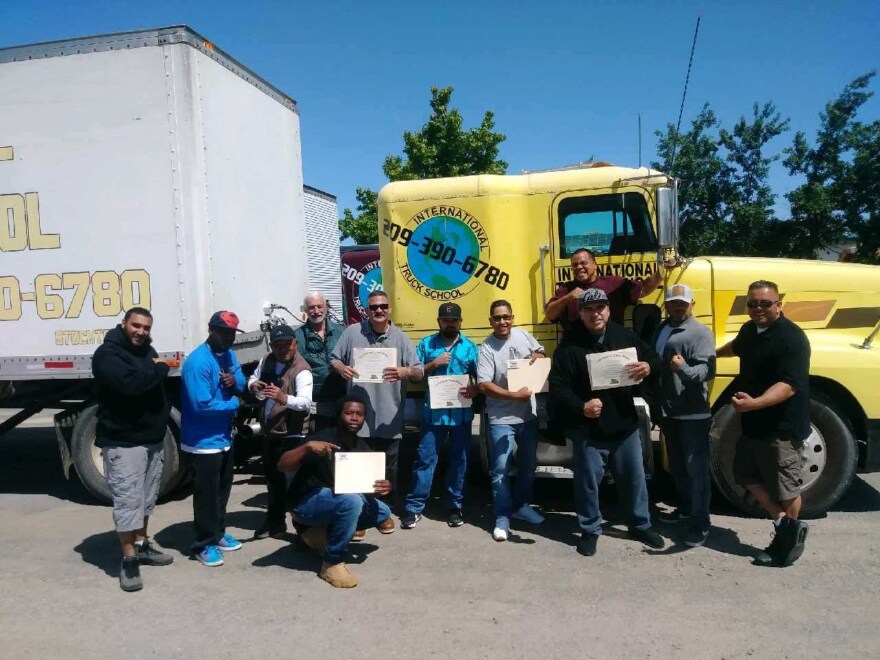Jason Wang was just 15-years-old when he was arrested for aggravated robbery and sentenced to 12 years in prison.
While serving his sentence, Wang worked with children and young adults who had also been sent to prison, and he witnessed many of them return just months after being released.
In fact, more than 75% of people who were formerly incarcerated in the U.S. are rearrested within three years of release, according to the Harvard Political Review.
“People should be held accountable if they committed a crime,” says Wang, who got out of prison in 2008. “But once they serve their time and pay their debt to society, we should be giving them a legitimate second chance to actually build a life for themselves because the system that we have today is trapping people in poverty.”
That’s why Wang, now 32, founded FreeWorld in 2019. The organization trains participants for a career in the trucking industry, and then places them in high-wage jobs.
“The reason why we chose the trucking industry is because they need over a million drivers over the next 10 years,” Wang says. “Because they're in such a tight labor market, they will hire somebody regardless of a criminal history.”
The California-based organization also helps participants across the nation get necessities like housing, transportation and identification documents. Once they graduate from the program, they can make anywhere from $50,000 to $80,000 a year just starting out. Participants are also given five years of additional support to help raise their credit scores, establish savings accounts and even buy a home or car.
Wang says that can be hugely transformational for multiple generations.
“Most of these folks are coming from backgrounds in poverty,” he says. “So just getting a leg up where you're earning a living wage now allows you the ability to get stable housing, take care of your kids, to get stable transportation.”
Wang also notes that generational poverty is especially prevalent in minority communities, which also make up the majority of people who are incarcerated.
“My personal belief is that this was set up to basically marginalize minorities, because, you know, coming out of the Jim Crow era, mass incarceration essentially became the next Jim Crow,” he says.
The $50,000 grant from The Dallas Foundation will help fund tuition for participants in the Dallas area, as well as help bring more local funders on board.
Matthew Randazzo, president and CEO of The Dallas Foundation, said the goal in selecting FreeWorld for the Pegasus Prize is to fuel change in the Dallas community.
“FreeWorld embodies the type of investment that makes a meaningful and lasting impact by providing a second chance to formerly incarcerated people, who are often overlooked and excluded from opportunities to forge a new path to becoming contributing members of society,” he said.
Got a tip? Email Rebekah Morr at rmorr@kera.org. You can follow her on Twitter @bekah_morr.
KERA News is made possible through the generosity of our members. If you find this reporting valuable, consider making a tax-deductible gift today. Thank you.





